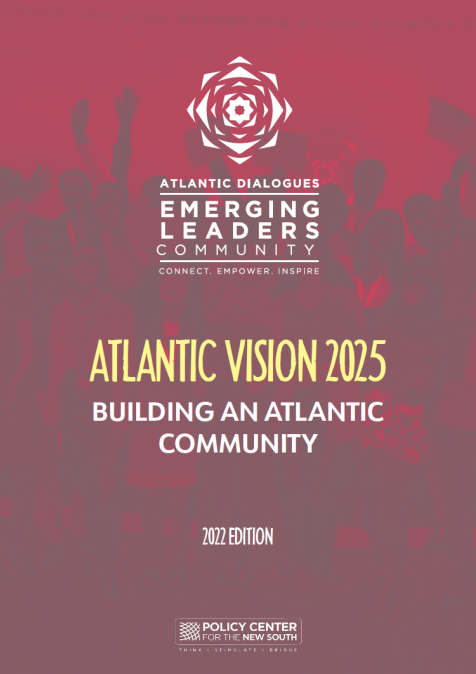Publications /
Book / Report
The Atlantic region is grappling with a host of challenges that require urgent attention. Economic and financial struggles, social unrest, and political changes are transforming the geopolitical landscape of the region. Issues including unemployment, poverty, violence, extremism, climate change, and migration are becoming more pressing, making it essential to find lasting solutions. In this context, it is crucial to create inclusive discussions between different generations and regions to tackle these challenges effectively.
To address these concerns, the 2022 edition of the Atlantic Dialogues Emerging Leaders (ADEL) program brought together a group of dynamic young leaders from diverse backgrounds to identify the major issues confronting the Atlantic region and to collectively identify solutions. This report presents the findings of one of the workshops of the program, called ‘Build, Connect, Anticipate’, during which the ADEL participants engaged in fruitful discussions about the pressing issues and ways to address them.
The Emerging Leaders focused their discussions on an inclusive Atlantic community that includes countries from the Global South. Divided into three working groups, they explored the economic, political, and social aspects of the challenges facing the Atlantic region.
Through this exercise, the participants assessed the future of the region and reflected on solutions that could ensure a better tomorrow for the Atlantic community.
The discussions led the Emerging Leaders to explore two key questions:
1) What are the main challenges facing the Atlantic Basin?
2) What solutions can the Atlantic community come up with to address these challenges? This report summarizes their findings, providing valuable insights into the challenges facing the region and the potential solutions to overcome them.



